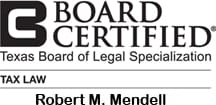Negotiating The Business Acquisition In A Buyer’s Market
Summer 1992 Issue of The Business Forum
By Robert M. Mendell
Due to the existence, generally speaking, of a buyer’s market in the business acquisition arena, certain negotiating points from a buyer’s perspective and a seller’s perspective have developed with some consistency. This article describes certain business points that have worked well for many of this writer’s clients when negotiating a business acquisition on behalf of the buyer, recognizing the increased leverage generally favoring the buyer in connection with such transactions. In the next issue of The Business Forum, the seller’s perspective will be addressed.
From The Buyer’s Perspective
In this type of market, the buyer is often able to successfully negotiate one or more basic business points such as a relatively favorable purchase price, low down payment, substantial deferred payments of the purchase price which are seller financed and no personal guaranty of the deferred payments of the purchase price. In addition, oftentimes the deferred payments are based on contingencies, the most common of which is based on future productivity of the purchased business, sometimes referred to as an “earnout” contingency.
What may be of particular importance to a buyer in an asset acquisition is the content of warranties and representations regarding the purchased business and the remedies available in the event of a material breach of any such warranties and representations. Successful implementation of a “right of offset” provision in the asset acquisition documents can completely switch the leverage regarding nonpayment of future installments of the purchase price in favor of the buyer and away from the seller, as would be traditionally the case. A “right of offset” allows the buyer to unilaterally offset from future payments due the seller the amount of any damages suffered by the buyer in the event something is wrong with the acquired business in contravention of any warranty and representation made by the seller. This right is important for a buyer because hidden defects or difficulties involving a business may not be ascertained for a period of time after acquisition, notwithstanding any extensive due diligence work performed by the buyer prior to acquisition.
The “right of offset” is not automatically provided for by operation of law and, if properly utilized forces the seller to initiate court action to disprove a breach of warranty. In contrast, without a “right of offset”, the buyer would be required under law to continue deferred payments of the acquisition price (and, thus, creating or expanding the seller’s litigation war chest) and initiate an expensive and lengthy court action in a suit to recover damages. If drafted properly, the “right of offset” can apply to deferred payments made to the seller in the form of restrictive covenants such as a covenant not to compete, and in the form of consulting or employee services if the seller (or its owners) continue to provide services to the acquired business. As the seller will often be a shell corporation after the sale of the business, it is important to have the ultimate recipients of the sales proceeds, usually the owners or shareholders, join in on the warranties and representations.
Negotiation Process
In a typical acquisition, the buyer will generally perform an extensive due diligence review of the company to be purchased and have prepared lengthy legal documents, usually in the form of an asset purchase agreement or a merger agreement, along with numerous exhibits and related agreements, such as covenants not to compete, promissory notes, security agreements and consulting or employment agreements. The due diligence and document preparation process not only entails a significant expenditure of the buyer’s time and energy, but also, the incurrence of significant expenses in the form of professional fees and related expenses. It is, therefore, imperative that the buyer ascertains that there is a “real” deal at the earliest stage possible, as most of the costs of the due diligence review and document preparation will generally be borne by the buyer. The buyer should not place himself in the position of making unnecessary concessions to the seller in order to avoid losing his considerable investment in terms of time and money, which is growing more and more significant as the acquisition process continues. Worse yet is the exposure of losing the entire deal at the tail end of the due diligence period, due to the inability of the parties to reach agreement on some material point, which point could have often been resolved prior to the expenditure of substantial time and money in the acquisition process.
Although negotiation of some points in a later stage of the transaction is almost always unavoidable, the preparation of the definitive agreements should be almost anticlimactic. The most significant negotiation stage of the business acquisition should be consummated at the beginning of the negotiation process and is best documented through a preliminary document often referred to as a letter of intent or term sheet. In this writer’s view, oftentimes not enough attention is placed on this important document and, too often, it is omitted in its entirety. The letter of intent should clearly outline all major business points, which could be “deal breakers”, including, aside from the obvious amount and payment terms of the purchase price, any personal guarantees to be required of the buyer, any assets of the buyer to be used as collateral by the seller, contents of warranties and representation and right of offset, whether legal opinions will be required, contingencies on deferred payments, parameters of any “earnout” provision and other important issues. The buyer should be mindful that most major concessions are attainable at this “letter of intent” stage and the basic structure of the transaction should be finalized at this state.



